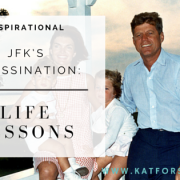Gilda Radner: Most of us remember her for the hilarious “Roseanne Roseannadanna”
Gilda Radner
(June 28, 1946 – May 20, 1989)
Hats off to a woman who made the world laugh at itself. It’s the 25th anniversary of the untimely death of the funniest darn woman I ever met. Gilda Radner lived across Hill Street from me in Ann Arbor, Michigan in 1968. We worked together at WCBN radio station, at the University of Michigan. I recall thinking she was destined for greatness.
Every time she walked in the room, she made you laugh. She was one of those people who had “I want to be with her” written all over her. You simply rose to a higher level of pheromones when Gilda was around.
She didn’t need to die. She was misdiagnosed for 11 months before doctors figured it out. She had advanced ovarian cancer. Remission was hers for a few years, but in the end, during the height of her wondrously humorous career, during her marriage to Gene Wilder, she succumbed. I miss her still, today.
Most of us remember her for the hilarious “Roseanne Roseannadanna” and “Baba Wawa” in the beginning glory days of Saturday Night Live with Bill Murray, Chevy Chase, and John Belushi. She was the first female comic on the show – a first for women. Her parodies of Lucille Ball, Patti Smith, and Olga Korbut were legendary.
When she went in for her last CT scan, she begged not to be sedated. She told Gene Wilder she would never wake up. She was right. She went into a coma and died three days later.
Through senseless loss, like the passing of Gilda at such a young age, and the silencing of a gift that gave us the belly laughs so badly needed in such an anxiety ridden society we were alerted to the dangers of ovarian cancer. The gene is transferred from mother to daughter. Her mother, her aunt, her grandmother… wouldn’t you think they would have connected the dots?
That was another time and another place but because of her death, the disease has been studied at the Gilda Radner Ovarian Detection Center at Cedars-Sinai (established by Gene Wilder) to screen high-risk candidates. It’s no longer the absolute death sentence it once was. Still very dangerous, but it can be handled if discovered early.
Gilda, you make me laugh to this very day. One quirky grin, and I can be in stitches. I miss you. We all do. I can only begin to imagine the laughs we would have had over the last 25 years. Thank you for the short, sweet, very wacky, zany, and poignant moments with you.









